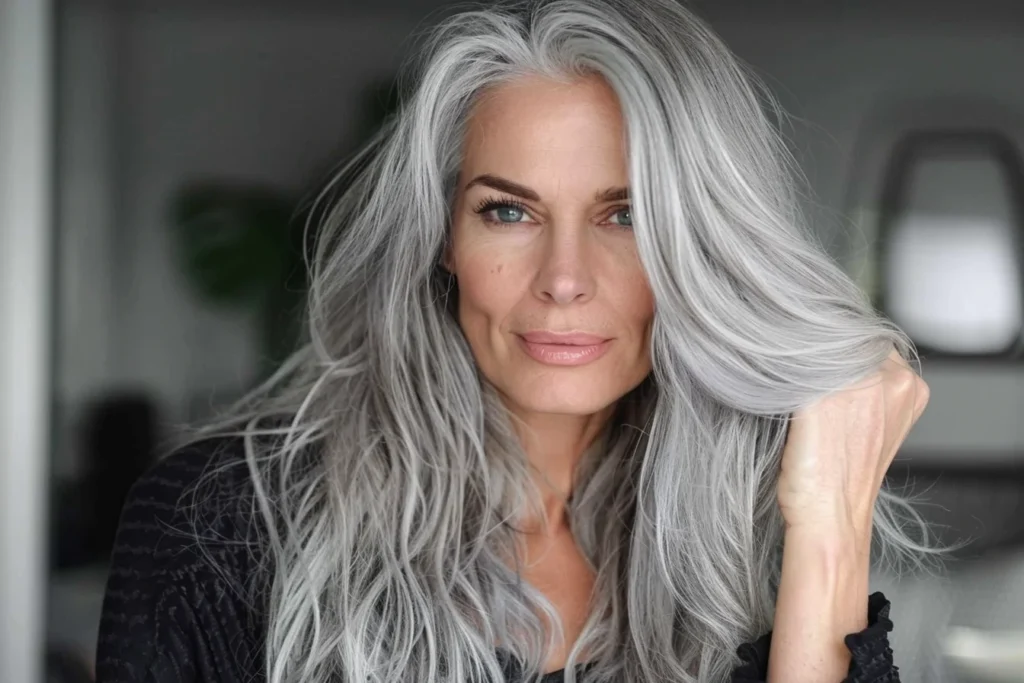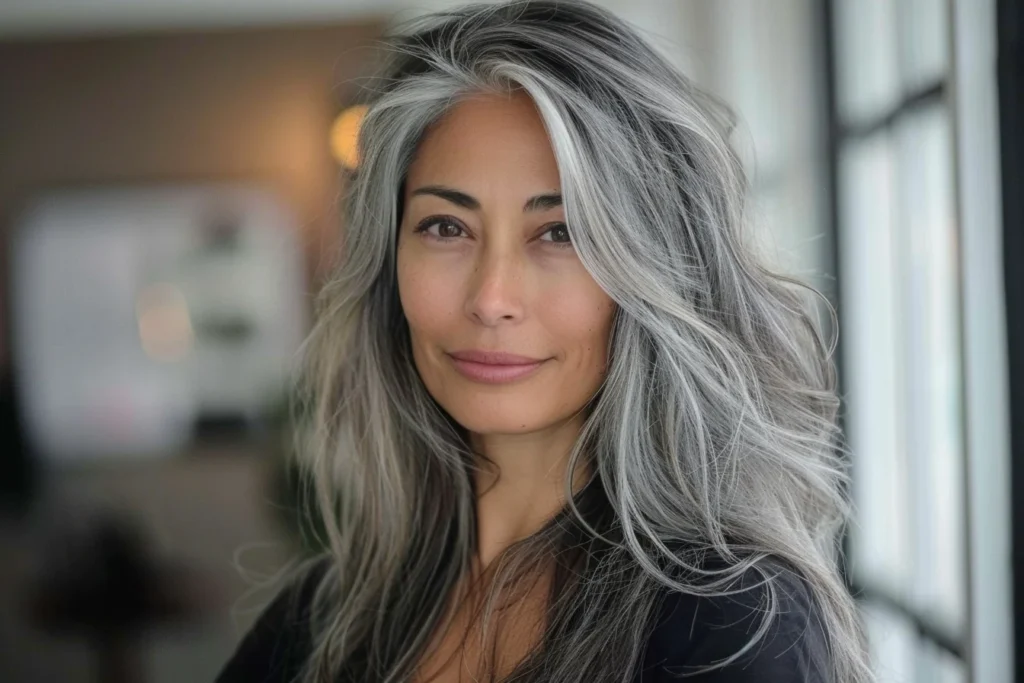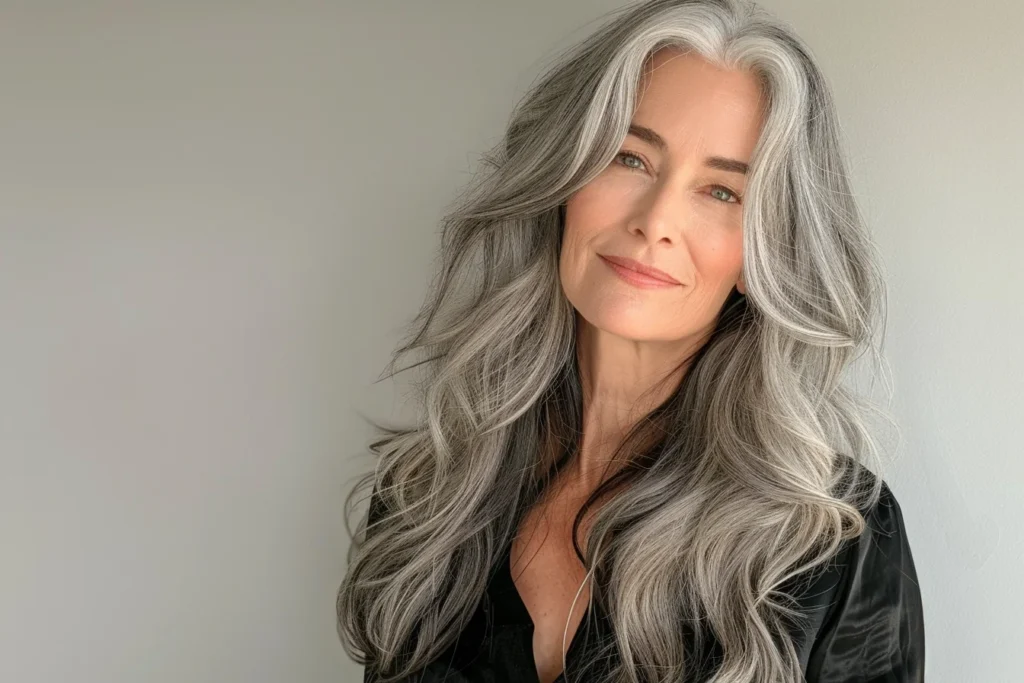While I was growing up, there was a saying that my hair could turn gray overnight due to stress. This belief was fueled by legends such as Marie Antoinette Syndrome, or stories of world leaders coming out with visibly darker hair after terms in office.
For myself, I still remember staring at the mirror during highly stressful moments and half expecting a new silver thread to be looking back at me.
Although it’s widely acknowledged that stress affects both our mental well-being and the overall health of our bodies, I have always wondered about its actual effects on our hair color.
A sudden switch to gray may seem like a minor consequence among other health tolls of stress, but it is nonetheless an interesting thing to investigate. To dig deeper into this matter, I consulted several experts.
Below is a summary of their findings.
What Causes Gray Hair

The pigment-producing cells in our hair follicles are called melanocytes.
According to Hadley King, MD, a New York City-based board-certified dermatologist; as we age these melanocytes decrease in number causing white and grey hairs.
In addition, aging also triggers a rise in hydrogen peroxide at the roots which leads to loss of pigment explained Marisa Garshick another renowned dermatologist from MDCS dermatology.
While genetics are mainly responsible for premature graying, lifestyle factors such as smoking or malnutrition and some medical conditions including anemia, vitamin B deficiency or thyroid problems can expedite this process.
The possible link between oxidative stress-induced free radicals lowering melanin production and corresponding implications for stress-associated hair color changes has been discussed elsewhere (Dr King pers. comm).
However, Dr.King suggested that more robust epidemiological data were required before determining whether there was an association between anxiety levels and early greying.
Understanding why we get gray strands has given me greater insight into aging and tension. It may not be a hazardous transformation yet one can see how time flies by and what burden people bear.
Dr. Barbosa, an associate professor of Dermatology at the University of Chicago Medicine and director of the Hair Loss Program, confirms that stress does impact hair coloration.
Nonetheless, more studies are needed to validate these results and examine the complex mind-body relationships.
Similarly, unease over this matter was also raised by Dr King who maintained that although stress hormones might affect melanocytes (the cells responsible for pigment in hair), a direct relationship between anxiety and greying hair is yet to be established.
Present research only includes a few small studies indicating that stress could be one aspect influencing alterations in hair color.
Dr. Marisa Garshick adds another perspective to the discussion, noting that oxidative damage due to stress could lead to graying of hair. This refers to a situation where pigment-producing cells may be impaired thereby reducing melanin production.
She cites an experiment in mice conducted recently whereby a rise in stress led to the depletion of melanocyte stem cells thus promoting graying. Likewise, Garshick also demanded more research into how stress specifically causes gray hair.
To sum up, although there is some initial evidence suggesting that stress may cause greying, more substantial and elaborate studies are needed to clarify this potential association.
Other ways in which Stress affects your hair

Stress can have drastic effects on our hair although it is most commonly associated with hair loss not greying.
For example, one form of stress related hair loss known as telogen effluvium occurs when numerous hairs enter the shedding phase together due to a stressful event whether psychological or physical.
This leads to a noticeable increase in shedding of hair usually much more than what you used to lose ordinarily. However, as Dr. Hadley King explains such type of baldness is temporary and regrowth occurs after the problem has been solved.
What is the best way to care for gray hair?
Although there might not be specific treatment options for managing grey hair caused by anxiety, experts recommended focusing on reducing this stress directly instead (Garshick).
For instance, Victoria Barbosa believes that if you are able to address emotional pressure then chances are good that you could manage gray hair or even reverse it though this area needs further investigation with respect to any probable benefits connected with doing so.
RELATED: The Risks of Air Drying Your Hair and Effective Alternatives
In the interim, a healthy lifestyle is a good thing because… Quit smoking, treat thyroid problems, and maintain a diet rich in nutrients and antioxidants that slow down the onset of grey (King).
Moreover, particular vitamins and minerals are thought to help support the pigmentation of hares. Dr.M.Garshick says supplements like biotin, calcium pantothenate, zinc, copper, and selenium may be helpful in cases of premature graying but there is still not enough evidence to support these claims.
Also, Dr. King talks about other products such as Arey which contains palmitoyl tetrapeptide-20 that proved itself in small studies for hair pigmentation promotion.
Due to changes in hair texture and dryness, it is necessary to take proper care of those who embrace their gray hair.

Barbosa suggests using hydrating shampoos and conditioners to get moisture back into your hair. Blue-pigmented products can help with toning down the brassiness and yellow undertones.
For example, Dove Love Your Silver Purple Shampoo and Ultra Light Conditioner and Oribe Silverati Shampoo and Conditioner are great choices of conditioning shampoo for keeping vibrant moisturized gray hair.
RELATED: How to Repair Damaged Hair
Gray Hair is an inevitable part of aging, so there is nothing to worry about (Barbosa). This change in perception is more than just a fashion statement. It’s a major cultural shift towards embracing aging gracefully.
Dr.Victoria Barbosa indicates that today people are learning to accept grey hairs as they grow old while viewing it as one of life’s natural beauty transformations at all ages.

